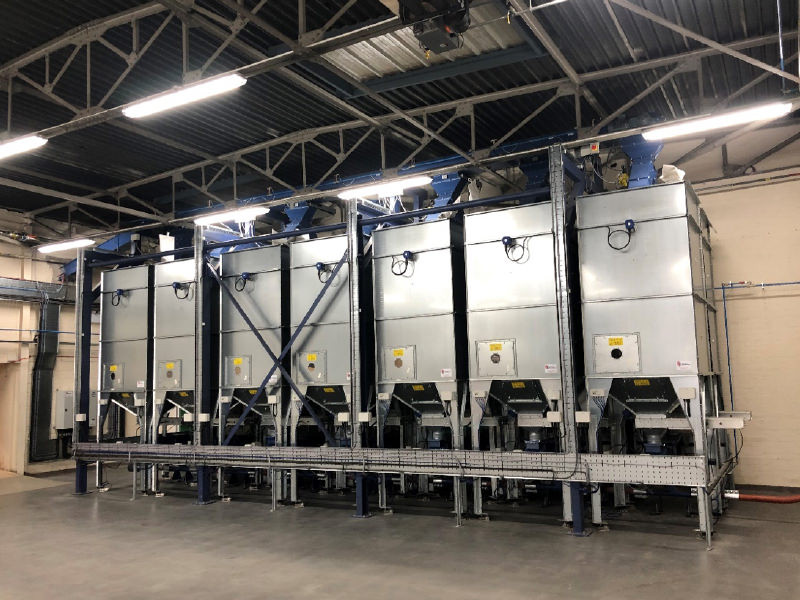
We have recently completed an installation at James Aimer’s new premises in Dundee, our first major installation in the coffee industry.
Outgrowing the existing facilities which was based in an old jute mill in the city centre of Dundee, Aimers acquired a modern 32,000 square foot unit nearby at Dryburgh Industrial Estate. The existing site had housed operations for more than 65 years, but as the volume of operations had vastly increased, the factory, spread over four floors, was increasingly difficult to operate within. Beans were brought in on the ground floor and sent straight to the top floor before being moved to the basement and then back to the ground floor. The new premises gave Aimers a blank canvas, allowing a bespoke set-up to be designed and installed from scratch, streamlining the production process throughout the factory.
Edwards took on a full project management role, guiding Aimers in terms of processes and regulations and, over 15 months, Edwards designed, supplied and installed the materials handling equipment that transported the beans around the plant to each processing area, as well as all the electrical components and wiring. Working closely with the roaster manufacturer Probat from Germany, Edwards also installed the roaster with DPS Group assisting with the controls and control panels.
The client now has a significantly improved factory setting that allows operations to run more efficiently. Product now goes through a streamlined process, with confidence that this process handles the high-quality product sensitively.
Eric Duncan, Managing Director of Aimers Coffee and Tea Ltd, said: “Our brief for Edwards Engineering was to come up with a design to transport and store beans which would maximise the available space in the new building and exploit the full capacity and throughput of the new roaster whilst making sure that the quality of the end product was not compromised. In order to achieve this we had to be able to transfer beans at a rate which would ensure by the time the roaster had completed one batch, the next batch was ready to go. We also needed as many storage silos as possible to ensure any bottlenecks were eliminated.”
“Edwards Engineering’s expertise and professionalism was a huge asset to this project. They guided the installation, taking on a project management role to ensure each stage ran smoothly and regulations were adhered to, all while delivering excellent engineering. Their locality and costs were a big plus, but the high-quality workmanship they carry out was the main reason we brought them on board.”
The project was a first of its kind for Edwards and has already led to discussions on a number of similar projects in the coffee industry.
Back to news